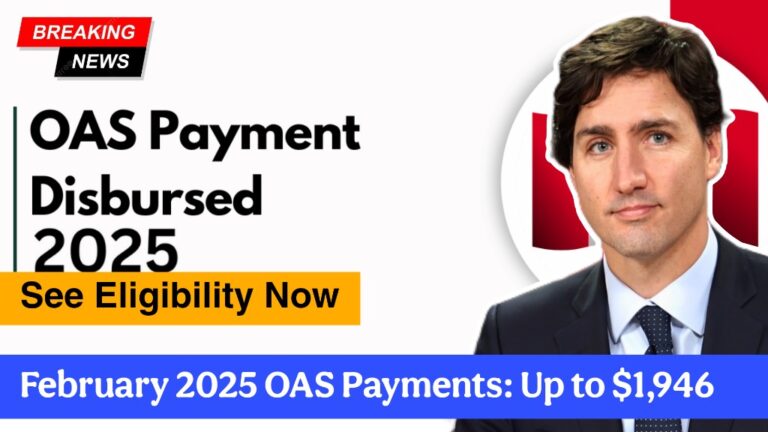$100 Stimulus Payments in 2025 – Rumors about a $100 stimulus payment targeting 111,000 Americans in 2025 have been making waves across social media and online forums. While some individuals are hopeful about receiving this financial boost, it’s essential to separate fact from fiction. As of March 27, 2025 , neither the IRS nor the federal government has confirmed any such program.
This article will explore the truth behind these claims, explain how to verify eligibility, and provide tips to avoid scams while staying informed through trusted sources.
Table of Contents
- 1 Chart: Key Facts About the Rumored $100 Stimulus Payment
- 2 Understanding the Rumored $100 Stimulus Payment
- 3 How to Verify Your Eligibility
- 4 Common Scams Related to Stimulus Payments
- 5 Steps to Stay Informed and Avoid Misinformation
- 6 Practical Example: Identifying a Scam vs. Legitimate Communication
- 7 Why Verification Matters
Chart: Key Facts About the Rumored $100 Stimulus Payment
| TOPIC | DETAILS |
|---|---|
| Status of Payment | No official confirmation as of March 27, 2025 |
| Eligibility Claims | Allegedly for 111,000 Americans, but no legislative backing |
| Common Scams | Unsolicited emails, texts, or calls asking for personal information |
| How to Verify Information | Check official IRS updates atIRS.gov |
| Steps to Stay Safe | Avoid sharing personal details; rely on government websites and alerts |
Also Read: Social Security SSI Payments Up to $838 on Jan 31 – Who Qualifies?
Understanding the Rumored $100 Stimulus Payment
The idea of a $100 stimulus payment sounds appealing, especially for individuals facing financial challenges. However, there is currently no official announcement from the IRS or federal government regarding such a program. Here’s what we know:
1. No Legislative Backing
Past stimulus payments—such as those issued during the COVID-19 pandemic—were backed by specific legislation (e.g., the CARES Act). Without a corresponding law or congressional approval, it’s unlikely that any new stimulus payment will materialize.
2. Targeted Group of 111,000 Americans
Some rumors suggest the payment will target only 111,000 eligible individuals , but no official criteria or lists have been released. This lack of transparency raises red flags about the legitimacy of the claim.
3. Unconfirmed Payment Date
While some sources mention potential payment dates in early 2025, these remain speculative without confirmation from credible authorities.
How to Verify Your Eligibility
If you’re curious about whether you qualify for this rumored payment, here’s what you should do:
- Check Official IRS Updates
- Visit the IRS website for the latest news and announcements.
- Look for press releases or FAQs related to stimulus payments.
- Sign Up for IRS Email Alerts
- Subscribe to IRS email updates to receive timely notifications about tax-related programs and payments.
- Consult Government Websites
- Trusted sources like USA.gov and WhiteHouse.gov often provide accurate information about federal initiatives.
- Be Skeptical of Social Media Posts
- Many rumors spread through unverified posts on platforms like Facebook, Twitter, or TikTok. Always cross-check claims with official sources.
Common Scams Related to Stimulus Payments
Scammers frequently exploit confusion around stimulus payments to steal sensitive information. Be wary of the following tactics:
- Phishing Emails: Messages claiming to be from the IRS or Treasury Department asking for personal details like Social Security Numbers (SSNs) or bank account information.
- Fake Phone Calls: Unsolicited callers posing as government agents demanding immediate action or payment.
- Misleading Websites: Sites mimicking official government portals to trick users into entering private data.
To protect yourself:
- Never Share Personal Information: The IRS will never request sensitive details via email, text, or phone call.
- Avoid Clicking Suspicious Links: Verify the sender’s identity before interacting with any links or attachments.
- Report Scams: If you encounter fraudulent activity, report it to the Federal Trade Commission (FTC) at ReportFraud.ftc.gov .
Steps to Stay Informed and Avoid Misinformation
In an era of rapid information sharing, staying informed is key to avoiding scams and misinformation. Follow these steps:
1. Rely on Trusted Sources
- Stick to verified government websites like IRS.gov , USA.gov , and WhiteHouse.gov .
- Consult reputable financial experts or news outlets for analysis and updates.
2. Monitor Legislative Developments
- Stimulus payments require legislative approval. Keep an eye on congressional bills or proposals that might authorize new programs.
3. Use IRS Tools
- The IRS offers tools like the “Where’s My Refund?” portal and Economic Impact Payment (EIP) Tracker to help taxpayers stay updated on their payments.
4. Educate Friends and Family
- Share accurate information with loved ones to prevent them from falling victim to scams.
Practical Example: Identifying a Scam vs. Legitimate Communication
Consider Sarah, who receives an email claiming she’s eligible for the $100 stimulus payment:
- Email Content: The message asks her to click a link and enter her SSN and banking details to “confirm eligibility.”
- Red Flags:
- The email doesn’t come from an official IRS domain (@irs.gov ).
- It demands immediate action using urgent language.
- There’s no mention of the program on the IRS website.
Also Read: April 2025 SSDI Update: Who Won’t Get Their Disability Check & Why?
Instead of responding, Sarah:
- Deletes the email.
- Visits IRS.gov to verify if any new stimulus program exists.
- Reports the phishing attempt to the FTC.
By taking these precautions, Sarah avoids becoming a victim of fraud.
Why Verification Matters
Stimulus payments are typically part of broader economic relief efforts authorized by Congress. Without legislative backing, claims about new payments are likely unfounded. Verifying information ensures you don’t waste time pursuing non-existent benefits or fall prey to scams.
Additionally, staying informed helps you:
- Protect your personal information.
- Avoid unnecessary stress caused by false promises.
- Focus on legitimate opportunities to improve your financial situation.




